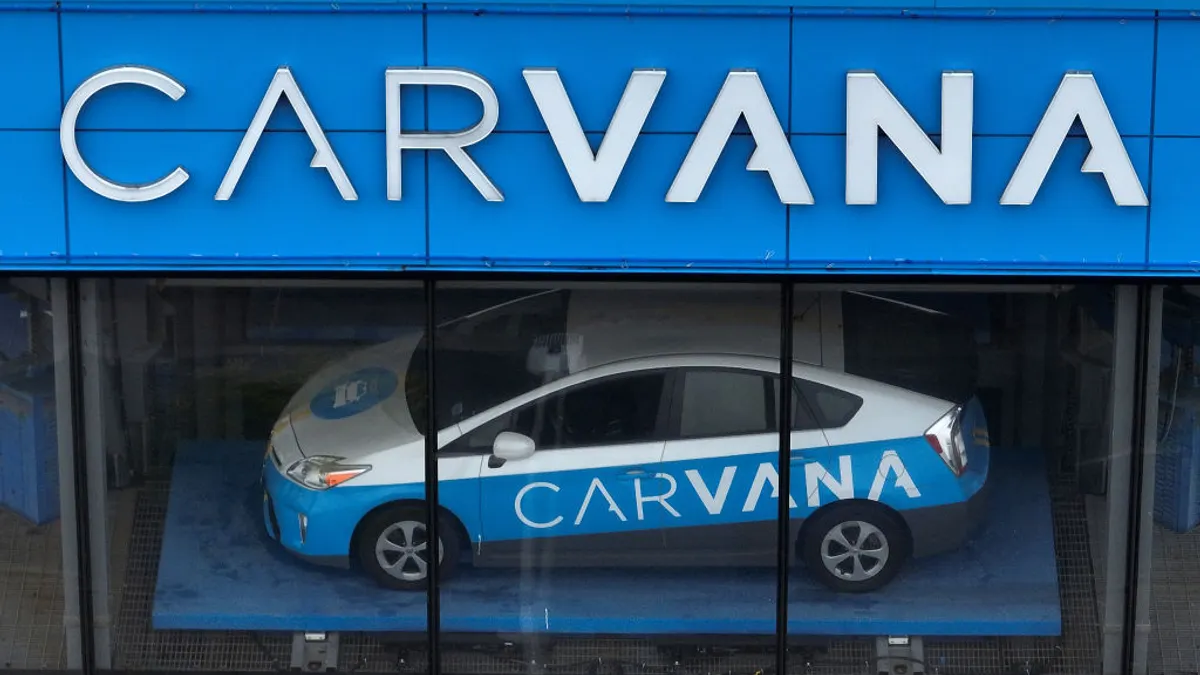Companies that do business in California may have to step up scrutiny of their supply chains for potential workers’ rights abuses, thanks to a new state law. And if a similar bill in the U.S. House of Representatives is passed, companies in the rest of the country could have to do the same.
The California Transparency in Supply Chains Act went into effect this month and requires companies to publicly report the steps they take to keep human trafficking and slave labor out of their global supply chains. There is also a bill pending in the House modeled after this law. But even if the proposed federal law doesn’t pass, recent attempts by tech giant Apple to be more transparent about its suppliers may force other companies to confront the issue of labor abuses.
The California law requires more than 3,000 manufacturing and retail companies that operate in the Golden State and have more than $100 million in revenue to disclose on their website whether they take steps to ensure their suppliers do not rely on practices like trafficking, defined by the federal government as the illegal trade of human beings for commercial exploitation. The proposed federal law would do the same, but it would also cover child labor and apply to any company of that size that has to file annually with the Securities and Exchange Commission.
California lawmakers hope the fear of a customer backlash will push companies to invest time and capital into going beyond disclosure to actually purge their supply chains of workers’ rights violations.
Some companies have already listed compliance with the California law as a risk in their financial statements. A music-instrument retailer, Guitar Center, wrote in its most recent S-4 that failing to comply with laws like the supply-chain disclosure act could produce “significant fines or penalties . . . and could adversely affect our reputation, results of operations, cash flow, and financial condition.” In its latest 10-K filing, Flexsteel Industries said something similar, adding that complying with the California law would raise its costs and constrain cash flow.
Both the California law and the House bill require disclosure, not action, so hypothetically a company could comply by disclosing that it does nothing to track these issues in suppliers’ operations. The disclosure requirements “leave companies with their own decision to make about how important it is for them to be judged in the court of public opinion, knowing that consumers may have a negative reaction,” says Rachelle Jackson, senior director of sustainability practices at UL Responsible Sourcing, a supply-chain risk consultancy.
But many companies recognize that even though the laws don’t require action, simple disclosure will not be enough, Jackson says. Patricia Jurewicz, director of the Responsible Sourcing Network, says if a company disclosed that it did nothing to monitor its supply chain, that would be a “huge reputational risk.” Advocacy groups regularly broadcast questionable company practices and the media picks up on any scandals, says Jurewicz. For this reason, companies may feel pressured to devise a plan to address labor violations by their trading partners.
Apple and Victoria’s Secret are two of the latest companies accused of being lax in monitoring workers’ rights at their suppliers. Bloomberg reported last month that Victoria’s Secret uses cotton suppliers that rely on child labor, though Fairtrade International, the group that certified the cotton, disputed the claims. Apple has also seen intense public scrutiny over revelations that some of its Chinese factories use child laborers, demand 12-hour days with no overtime pay, and have high rates of worker suicides.
Perhaps in response, earlier this month Apple revealed a list of many of its suppliers. For the first time, it also asked the Fair Labor Assn., a nonprofit labor-rights organization, to monitor several of these suppliers and publish the findings without identifying the factories. Apple may hope the transparency will end negative publicity about its overseas partners.
Other companies, particularly those not currently involved in public-relations problems of this kind, may not feel the need to disclose a list of their suppliers. But all companies should consider disclosing more about what they do to prevent workers’ rights abuses. Transparency on this front is becoming a competitive advantage, says Jurewicz. As companies like Apple set a precedent and “as it becomes more common to [disclose such information], when companies don’t do it, people will ask ‘why not?’” she says.
Still, in a troubled economy, it is unclear how much consumers actually care about labor practices abroad. “At the end of the day . . . consumers don’t always put their money where their mouth is,” Jackson says. Ultimately, “the majority of America is probably really just looking at what’s the best value and how do I make my dollar go the farthest.” Still, these laws could begin to change buying habits as supply chain information becomes more readily available and customers more informed, she adds.
Even after months of controversy over its factory conditions, on Tuesday Apple reported quarterly earnings of $46.3 billion, a 73% increase over the same period the year before. It sold 37.04 million iPhones and 15.43 million iPads, twice as many as the same quarter in 2010.
Here are a few ways companies can begin to monitor their supply chains for workers’ and human rights abuses:
Investigate. The California law requires companies to report whether or not they have looked into workers’ rights abuses in their supply chains based on the geographical locations of factories and the kinds of raw materials used in their products. As a first step, especially if a company is not ready to invest in an independent auditor, it can conduct this research using the U.S. State Department’s Report on Human Rights or its annual Trafficking in Persons Report, which rates countries based on what they’re doing about trafficking.
Target suppliers you can control. Companies may have little leverage over suppliers that they don’t give significant business to, says Jackson of UL Responsible Sourcing. So a company should deal with the suppliers it has the most influence with first, using contracts as leverage to stop workers’ rights violations. Apple used this strategy, focusing on the factories that represent 97% of its spend. “Even the name of Apple might not have leverage at a company if they’re only 2% of the client base,” Jackson says. “It makes sense to try to direct your resources where you know you can have an impact.”
Help raw-materials suppliers along. Companies usually have to rely on certification, not an audit, from suppliers that are upstream, like raw-materials providers. Under the California Transparency in Supply Chains Act, a company must disclose whether it asks such suppliers to certify that their products comply with its labor standards. Companies that want results from this exercise should make the process easier for suppliers by providing them with training, questionnaires, and easy-to-use audit tools. “Companies might want to support the process to make it more credible,” says Jackson. “Otherwise they’re just going to get a piece of paper that says, ‘yeah, everything’s great, no problems.’”
Reevaluate auditing priorities. Although many companies already audit their supply chains, auditors do not necessarily check for signs of trafficking, says Jackson, a former supply-chain auditor. Many audits focus on the relationship between employers and employees but do not have criteria in place to evaluate whether the employees are held in slavery or indentured servitude. Companies that want to rid their supply chains of these practices should learn what their audits cover and what procedures their auditors use.




















